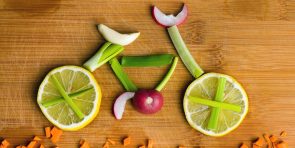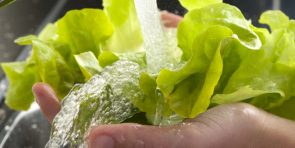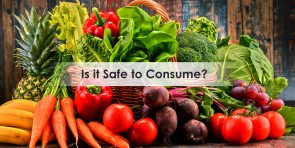5 Food Items that Need Proper Cleaning During Monsoon
Monsoon is the much-awaited time when you get some welcome relief from the scorching heat. However, monsoon is also the time when you need to stay extra careful as the season also leads to a number of health issues. Monsoon is the season when water-borne diseases are on the rise, which can lead to food poisoning, stomach infections, and diarrhea. Apart from avoiding junk food during the rainy season, there are also some food items that need some extra cleaning to stay safe and avoid water-borne diseases. The blog lists some of the food items that should be cleaned with extra care during monsoon.
1. Green Leafy Vegetables
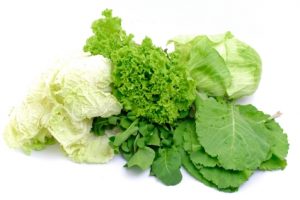
Green leafy vegetables are very healthy, however, you need to be extra careful when you prepare them during monsoon. Studies have found that green leafy vegetables are prone to bacterial infections during monsoon. As a result, many people may also advise you to avoid green leafy vegetables such as spinach, lettuce, and arugula during monsoon. If you really need to eat green leafy vegetables for some reason, ensure that you wash them with the help of a vegetable and fruit cleaner before cooking.
2. Cabbage

Another vegetable that you need to be extra careful when consuming is cabbage. The vegetable has complex layers and folds of leaves, which makes it easy for bacteria and worms to hide easily. If you bring home cabbage during the monsoon, make sure that you wash it thoroughly. Remove all the leaves and use a vegetable cleaner to wash the cabbage before cooking to avoid any chances of infections or water-borne diseases.
3. Sprouts
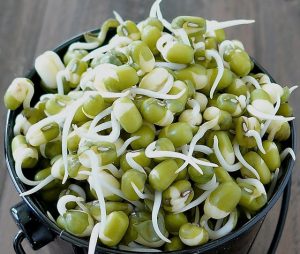
Raw sprouts are one of the healthiest foods that you can eat to stay healthy and also keep your weight in check. However, sprouts are loaded with harmful pathogens during monsoons which may lead to serious health problems during monsoons. You can either avoid eating sprouts or wash them in vegetable and fruit cleaner before eating to avoid any chances of infection or water-borne diseases.
4. Broccoli/ Cauliflower

Food items such as broccoli or cauliflower are another food item that you need to avoid during the monsoon. Similar to leafy vegetables, broccoli or cauliflowers may have insects breeding on the leaves. If you really need to eat these vegetables, use a vegetable and fruit cleaner to wash the vegetables and soak them in a bowl of warm water before cooking. To be on the safer side, boil the vegetables before consuming them.
5. Cucumber
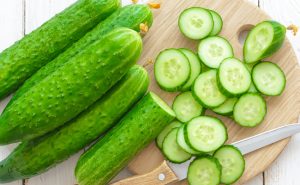
Cucumber is an integral part of salads. Though it is a very healthy food item, you need to be extra careful when including cucumbers in your diet during monsoon. Cucumbers are eaten raw which is the reason why they need extra attention when it comes to cleaning them. The skin of the cucumber is susceptible to infection which can lead to a number of health problems. An ideal way to clean cucumbers is by scrubbing the surface or you can also peel the skin before consumption. Don’t forget to wash it properly before consumption.
Last Few Words

When it comes to eating green leafy vegetables, you need to be extra careful to avoid contacting any infections or water-borne diseases. Green leafy vegetables can be extremely dangerous for your health, if not washed and stored properly, during monsoons. If possible, avoid eating green leafy vegetables and if you need to eat them, make sure to wash the vegetables properly before eating. The vegetable and fruit cleaner from KENT is an ideal appliance that uses ozone to remove harmful contaminants from the vegetables to ensure that you eat healthy and safe. The ozone disinfection technology kills bacteria, viruses, and fungi and keeps you safe from food-borne diseases.
Frequently Asked Questions
1. What foods to eat during monsoon?
During monsoon, it is essential to consume foods that boost immunity and aid digestion. Include seasonal fruits like pears, apples, and pomegranates that are rich in antioxidants and vitamins. Consume vegetables like bitter gourd, pumpkin, and bottle gourd that help improve digestion. Opt for warm soups, herbal teas, and ginger-infused beverages to keep the body warm and aid digestion.
2. What is the best food for the rainy season?
The best food for the rainy season includes warm and nourishing dishes that boost immunity and provide comfort. Include seasonal vegetables like spinach, fenugreek, and cauliflower in soups, stews, and curries. Opt for protein-rich foods like lentils, chickpeas, and grilled chicken to support energy levels. Incorporate warming spices like ginger, turmeric, and cinnamon to enhance digestion and immunity. Additionally, enjoy a variety of herbal teas and warm beverages like ginger tea or masala chai. Avoid street food and ensure that all ingredients are fresh and properly cooked to prevent waterborne illnesses.
3. Which fruits are best in monsoon?
During the monsoon season, it is best to consume fruits that are hydrating, immune-boosting, and easy to digest. Some of the best fruits to enjoy during this time include pomegranates, apples, papayas, cherries, and peaches. These fruits are packed with essential vitamins, minerals, and antioxidants that help strengthen the immune system and provide hydration. Additionally, fruits like oranges and lemons are rich in vitamin C, which can help ward off common monsoon-related illnesses. Remember to wash fruits thoroughly and consume them fresh to ensure their nutritional value and safety.


